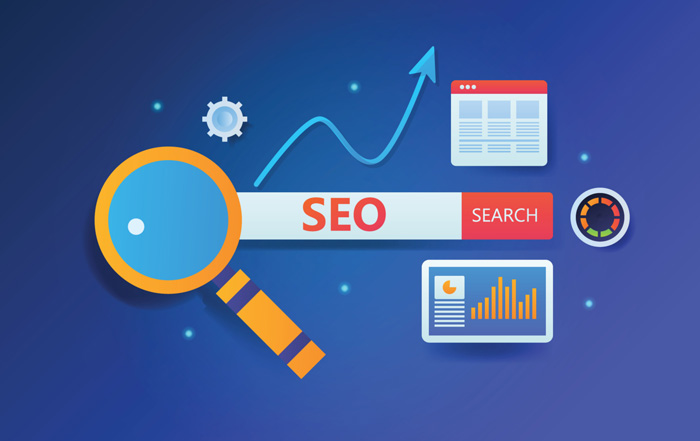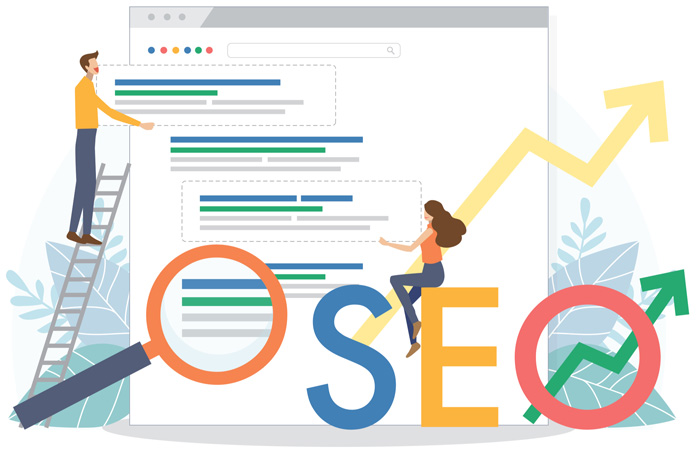Page titles are one of the most basic and important aspects of a properly search-engine-optimized website. They describe what a page is about while enticing users to click to learn more. They also utilize keywords to get pages to show up on the search results page for relevant queries. All of this makes having properly optimized page titles a core component of your site’s overall SEO performance. In this post, we’ll discuss what makes a well-optimized page title, how to structure your titles, and how to write the best titles for your website.
What Does it Mean for a Page Title to Be Optimized?

A page title is considered optimized when it has been written in a way that gets it to appear on Google for relevant search queries while also getting clicks. Because one without the other isn’t going to do much good for increasing your website’s traffic. So, what are the main components of an optimized page title?
- Uses relevant keywords
- Written for search intent
- Uses proper character length
- Includes selling points
- Has structure
Relevant Keywords
Put simply, keywords are words that communicate what a page is about. If we were to use the page title of this post as an example, we could say that the keywords being used are “SEO Page Titles,” and “2022.” Using these keywords, we can safely assume that SEO page titles will be the topic of this post and that 2021 is the year that this information is relevant. So, when writing your own page title, think about what keywords people would use to search for the topics your page covers.
Writing for Search Intent
The simplest way to think about search intent is through these four categories:
- Informational
- Commercial
- Transactional
- Directional
Informational searches would include those for How-To guides, reviews, news articles, and other informational resources. The intent of these types of searches is to acquire information about something.
Commercial searches are those that are trying to find the best price on a product, service, or occasion. These would include searches for price comparisons or use keywords such as “best,” “top,” or “budget.”
Transactional searches are when someone is looking to hire or book someone to do something for them or when looking to purchase something.
Directional searches are for when you’re trying to get to a particular place, such as a login page, or perform a particular action such as getting directions to a location, downloading an app, or searching for a brand.
Knowing which search intent your page is trying to fulfill is important because it will impact all other aspects of your title.
Page Title Character Length
The sweet spot for the length of a page title is between 30 and 60 characters. Most page titles will require at least 30 characters to fit all the important keywords about a page. But going over 60 can cause Google to add an ellipsis ( … ) at the end of your title on mobile devices, causing it to appear disjointed or cut off at the end and potentially prevent important keywords from appearing. For desktop screens, 70 characters is the approximate cut-off point.
You can preview how your page title will look on Google by using Portent’s SERP Preview Tool. This will show you if your title is too long or if you have room to add more keywords.
Selling Points in Your Page Titles
Selling points are keywords or phrases that make whatever is being offered more enticing. This would include:
- Free 14-Day Trial
- 24/7 Service
- No Fees
- Fast Response
- Best
- Top Ranked
You could also include other psychological trigger words such as:
- Limited Time Only
- While Supplies Last
- Risk-Free Returns
Using selling points like these may not be appropriate for every page title, but if the goal of the page is to make a sale or obtain some form of information from the user, words, and phrases like these can help get them there.
Page Title Structure
The structure of a page’s title is determined by a combination of its search intent, keyword hierarchy, keyword density, character length, and the selling points used. Below are some general rules for page title structure:
- Put your most important keywords as close to the beginning as possible.
- Include your brand name at the very end or very beginning of the title.
- Use either the pipe symbol ( | ), dash symbol ( – ), or colon ( : ) as dividers
Here is an example of a well-structured page title:

In the above example, we have our most important keyword, “Atlanta Party Planner,” appearing first. Then we have a dash to provide separation and structure for our other keywords: “Birthdays” and “Graduations.” Lastly, we have the name of our company, “WePlan,” separated by the pipe symbol to signal that this is our brand name and not a continuation of the types of parties we do planning for.
If we wanted to do an alternative structure for this page title in which the brand name appears first, we could have it read:

Both of these examples would serve as great titles for an Atlanta-based party planning company’s home page.
How to Write a Page Title for SEO

Now that you understand what it means for a page title to be optimized, let’s cover some tips to help you create your own optimized page titles.
1. Make Your Titles Unique
Every page on your website should serve a unique purpose, and your page titles should reflect that through their diversity of keyword usage. So, no one page should have the same title. This will help users differentiate pages on your site and allow you to benefit from using a wide range of relevant keywords.
2. Use A Variety of Keywords
When writing your page titles, make sure that you’re using as many relevant keywords as possible while placing the most important ones at the beginning of the title. Let’s say that you’re a music instructor that teaches several different instruments. You wouldn’t want every page title to use the generic keyword of “Music Lessons.” You would want to have pages especially for “Piano Lessons,” “Guitar Lessons,” etc., and title those pages appropriately to the lesson type.
3. Make Your Page Titles Accurate
The keywords used in a title should accurately cover the topics of a page. Using irrelevant or deceptive keywords will most likely cause users to swiftly leave the page and increase its bounce rate. This will signal to Google that your page is not giving users what they want and will cause the page’s ranking to be lowered on the results page.
4. Don’t Make Your Page Titles Too Long or Too Short
Remember to keep your page titles within the 30 to 60 character range.
5. Use Selling Points When Appropriate
Selling points can be added when your page’s title would appear short otherwise or when it will differentiate it from others on the results page. But remember, getting users to click is just half the battle. You also have to deliver on the promises made by your page titles.
Examples of Optimized Page Titles
Let’s stick with our previous example of a party planning company called WePlan. Let’s say the WePlan website has the following pages:
- Home
- About Us
- Birthday Parties
- Graduation Parties
- Wedding Showers
- Testimonials
- Contact Us
Below is the optimized title we would give to each of these pages.
Home Page Title

About Us Title

Birthday Parties Title

Graduations Parties Title

Wedding Showers Title

Testimonials Title

Contact Us Title

You likely noticed that the keyword “Atlanta” appears in almost all of our page titles. This is because users, when searching for services, often look for businesses in their area. So, because our hypothetical party planning business operates in Atlanta, we want to make sure we’re utilizing that keyword along with others whenever possible.
Page Titles & SEO
As we mentioned at the beginning, optimized page titles are a critical piece of a website’s SEO strategy. However, it’s far from the only thing needed to compete in the highly competitive world of search marketing. To learn about more ways to make your website search engine optimized, check out our post on getting your website SEO ready and this one on how to more effectively market your business online.
Get Professional SEO Services
If you’re struggling to get your website more traffic from search engines, Barta Media Group can help! Send us a message to learn more about our SEO services and how we can be a difference-maker for your business.
